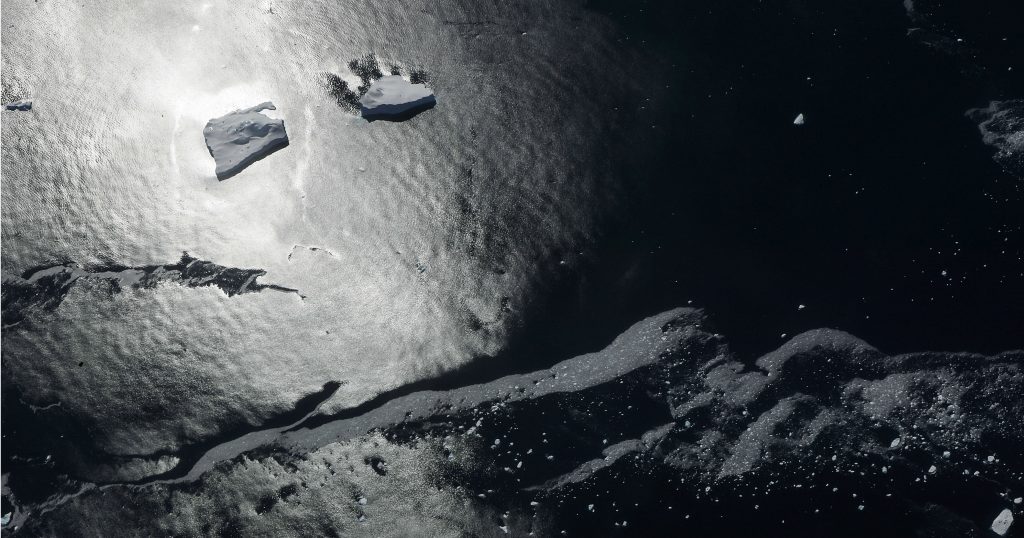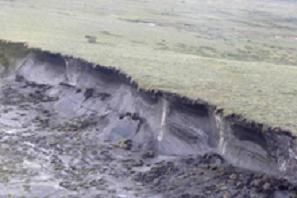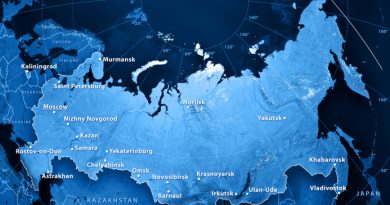Experts urge policy overhaul to address climate tipping point risks

Decision-makers need to develop more robust policies to address the potential impacts of climate tipping points that threaten to destabilize the climate system, a new policy brief out of Finland says.
The report was put together by The Academy of Finland’s Atmosphere and Climate Competence Center (ACCC), a body coordinated by the University of Helsinki, the Finnish Meteorological Institute, Tampere University and the University of Eastern Finland.
“Currently, there are no adequate international governance regimes that address the risks associated with climate system tipping points,” the brief said. “No international or regional institution includes these threats in their agenda.”
While the media often discuss the melting of ice sheets in Greenland and the West Antarctic, as well as the drying of the Amazon rainforest, the potential shutdown of the Atlantic Meridional Overturning Circulation (AMOC) is less well known.
However, it could have far-reaching impacts and is a major focus of the brief.
Impact of AMOC on global climate system
The AMOC, a major current in the North Atlantic, functions as a conveyor belt of warm and cool water, influencing weather patterns worldwide. For instance, it transports warm water from the South to Europe, contributing to mild weather, before circulating cool water back down south beneath the ocean’s surface.
Because of how it helps move heat around the globe, the current plays a key role in things like weather patterns, rainfall, and temperature across the world but especially in Europe.
But as global warming causes increased melting of Arctic sea ice and the Greenland ice sheet, salinity of the water is decreasing, making it less dense and more unlikely to easily sink, disrupting the density-dependent current.
- Proactive climate tipping point preparation and management by policymakers.
- Focus research on climate models and monitoring to understand and address societal impacts.
- Prevention through international advocacy for emission reductions and sustainable practices is crucial.
Although several studies have suggested the AMOC could shut down within this century, the brief authors stress there is currently no scientific consensus on the likelihood of this happening.
“Based on the current knowledge, an AMOC shutdown by the end of the century remains unlikely,” Joonas Merikanto, head of the climate system modeling group at the Finnish Meteorological Institute, said in a statement on Tuesday.
“However, it is expected that as climate change progresses, AMOC will continue its observed slow decline. Since the possibility of a shutdown cannot be completely ruled out, its impacts and risks must also be understood in national and international decision-making.”

The potential impacts of an AMOC shutdown could include everything from ecosystem disruption, food insecurity, economic instability and changes in living conditions, and the brief urges policy makers to consider the effects of even a current slow down or disruption and do what they can to mitigate the risks.
“The most effective measure to prevent AMOC shutdown is to limit climate warming and the rate of warming, which accelerates the melting of the Greenland ice sheet and Arctic sea ice, key factors in the weakening of AMOC,” the brief said.
“Practically, this means that global greenhouse gas emissions must be rapidly reduced, as delayed emission reductions leading to rapid climate warming increase the likelihood of an AMOC shutdown.”
Once threshold crossed, difficult to stop
The brief’s authors emphasized the importance of public discussions about tipping points, but advocated for a simultaneous consideration of risks and solutions in these discussions.
“Public communication about the risks associated with tipping points can present significant challenges: on one hand, increased awareness of tipping points and their risks can spur climate action; on the other hand, it can lead to strong emotional reactions, fear of the future, and paralyzing effects on action,” the report said.
The Finnish Meteorological Institute’s Joonas Merikanto acknowledged the uncertainty surrounding the potential shutdown of the AMOC, but said action now would mitigate the grave consequences of such an event once a tipping point is reached.
“The concerning aspect of the AMOC slowdown, as with other potential climate tipping points, is that once the tipping point is crossed, the process can accelerate and become very difficult, if not impossible, to stop,” he said.
Comments, tips or story ideas? Contact Eilís at eilis.quinn(at)cbc.ca
Related stories from around the North:
Canada: Makivvik launches climate adaptation strategy for Nunavik, Eye on the Arctic
Greenland: Alarming, above-average ice loss in Greenland due to rising temperatures, Eye on the Arctic
Norway: Polar heat record. July average above 10°C, The Independent Barents Observer
Sweden: Another year of shrinking glaciers predicted in Sweden’s Far North, CBC News
United States: Bursting ice dam in Alaska highlights risks of glacial flooding around the globe, The Associated Press



